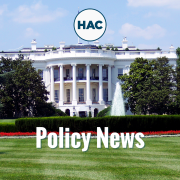HAC Opposes HUD Proposal to Eliminate Disparate Impact Fair Housing Rules
The Department of Housing and Urban Development has proposed to change its Fair Housing Act regulations. The revisions would eliminate HUD’s rules on disparate impact — the legal concept that conduct is discriminatory if it has inequitable effects, even if there was no intent to discriminate. HAC does not support the proposed change and strongly urges HUD to retain and enforce its current rule. HAC argues that:
- “Housing affordability and fair housing connect through the principle of ‘disparate impact.’”
- Rural borrowers more often receive loans with more costly terms and rural residents are disproportionately members of protected classes.
- Court decisions have not invalidated disparate impact liability.
- HUD has an explicit statutory responsibility to ensure equal opportunity and freedom from discrimination.



